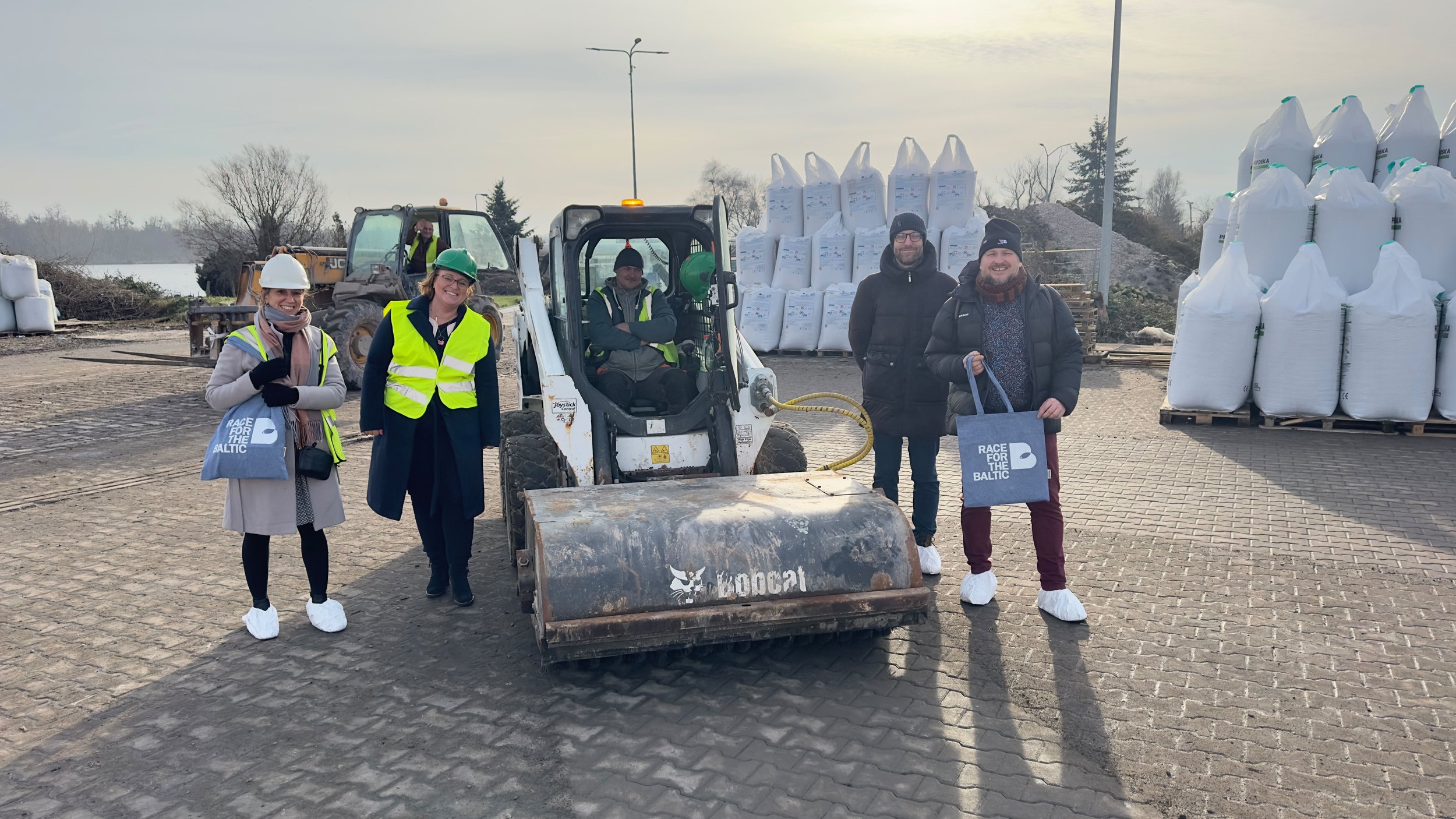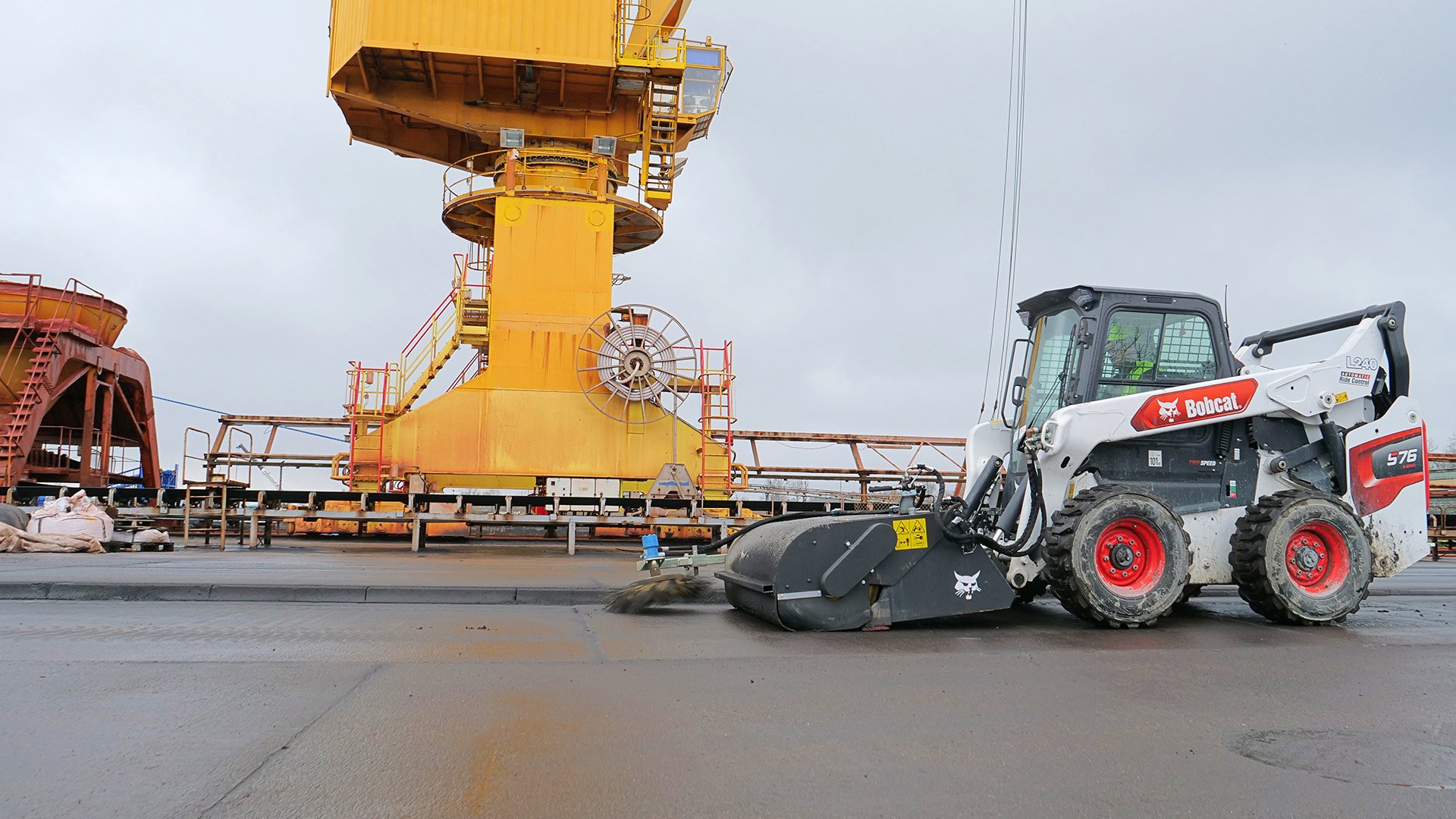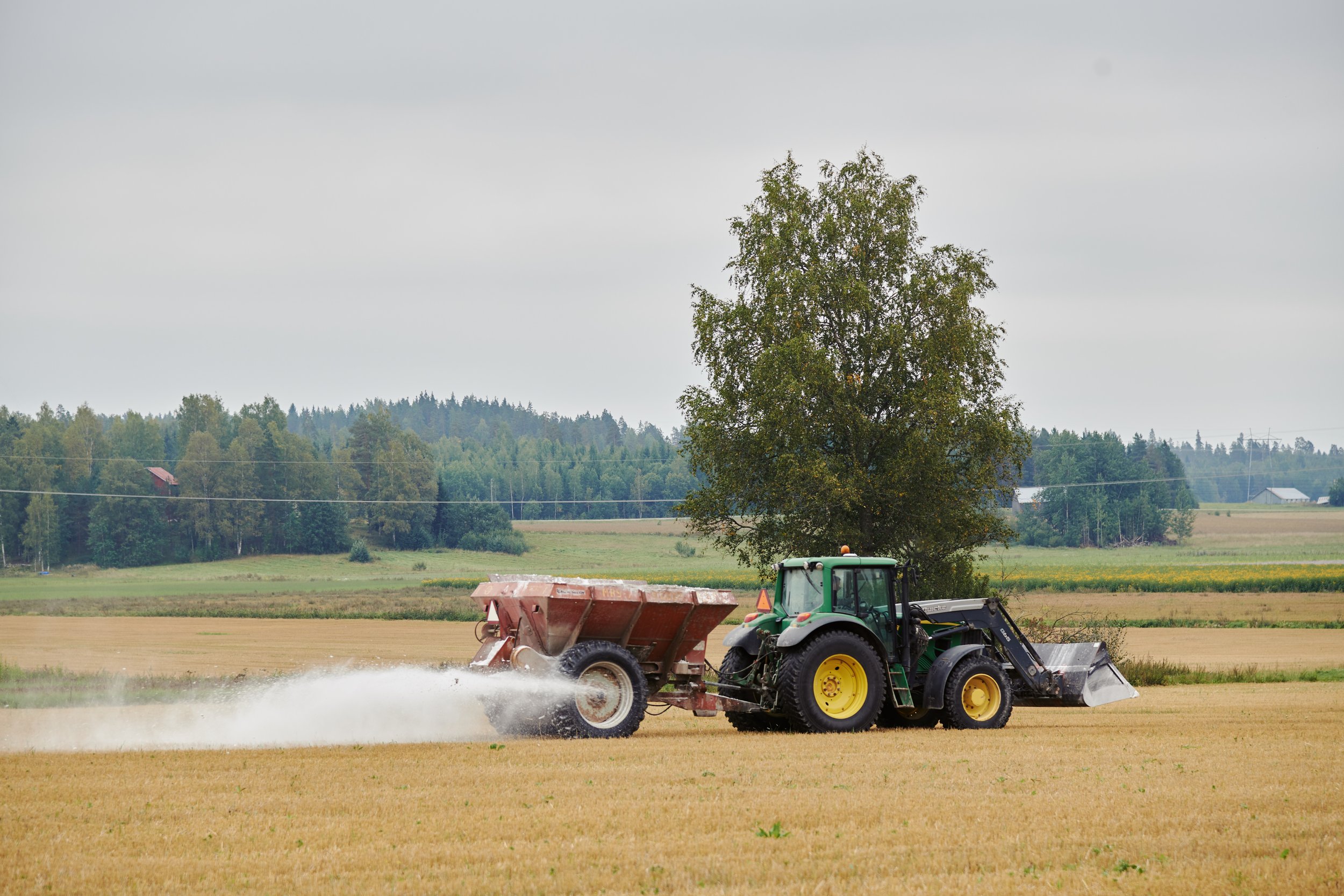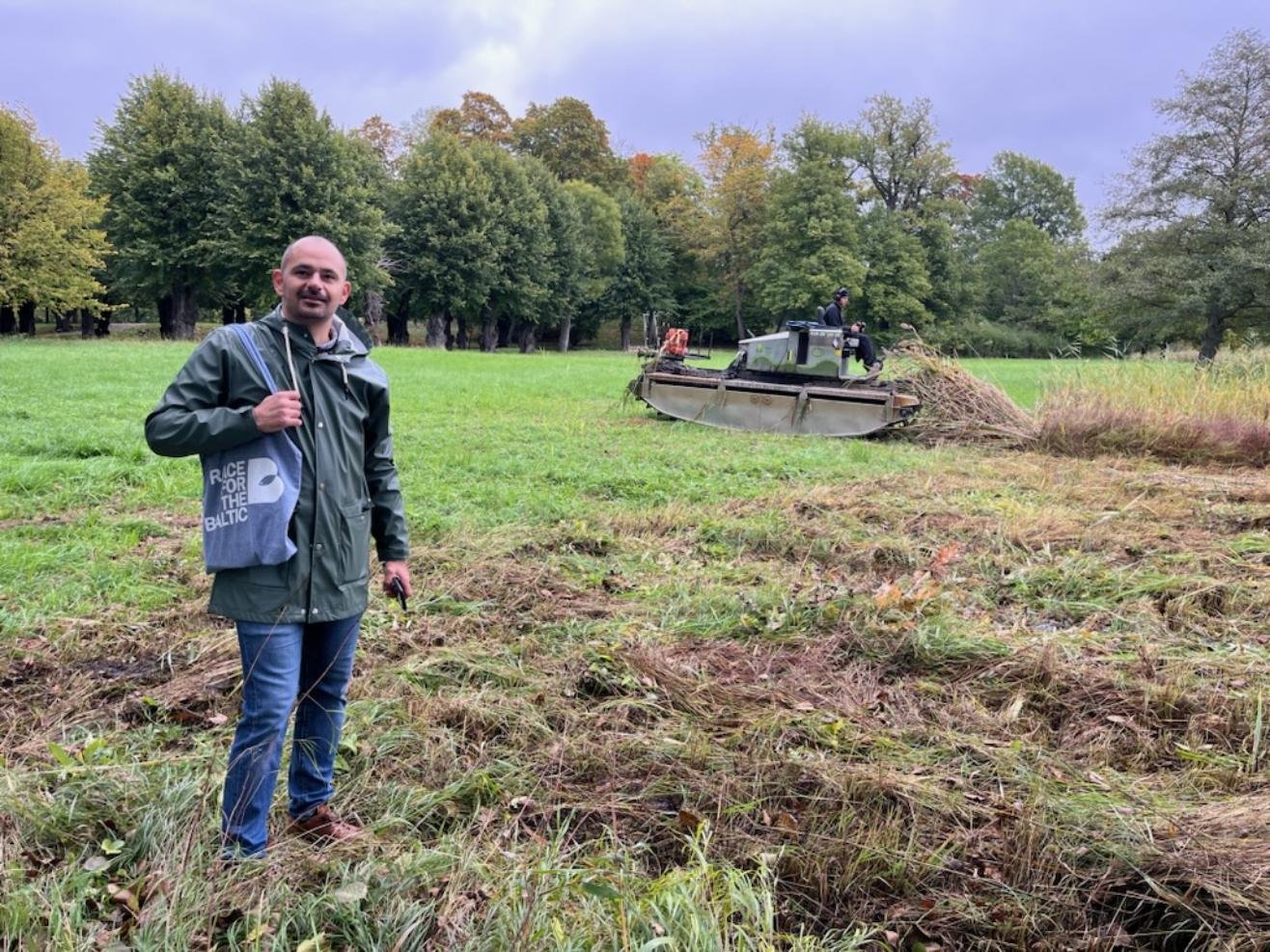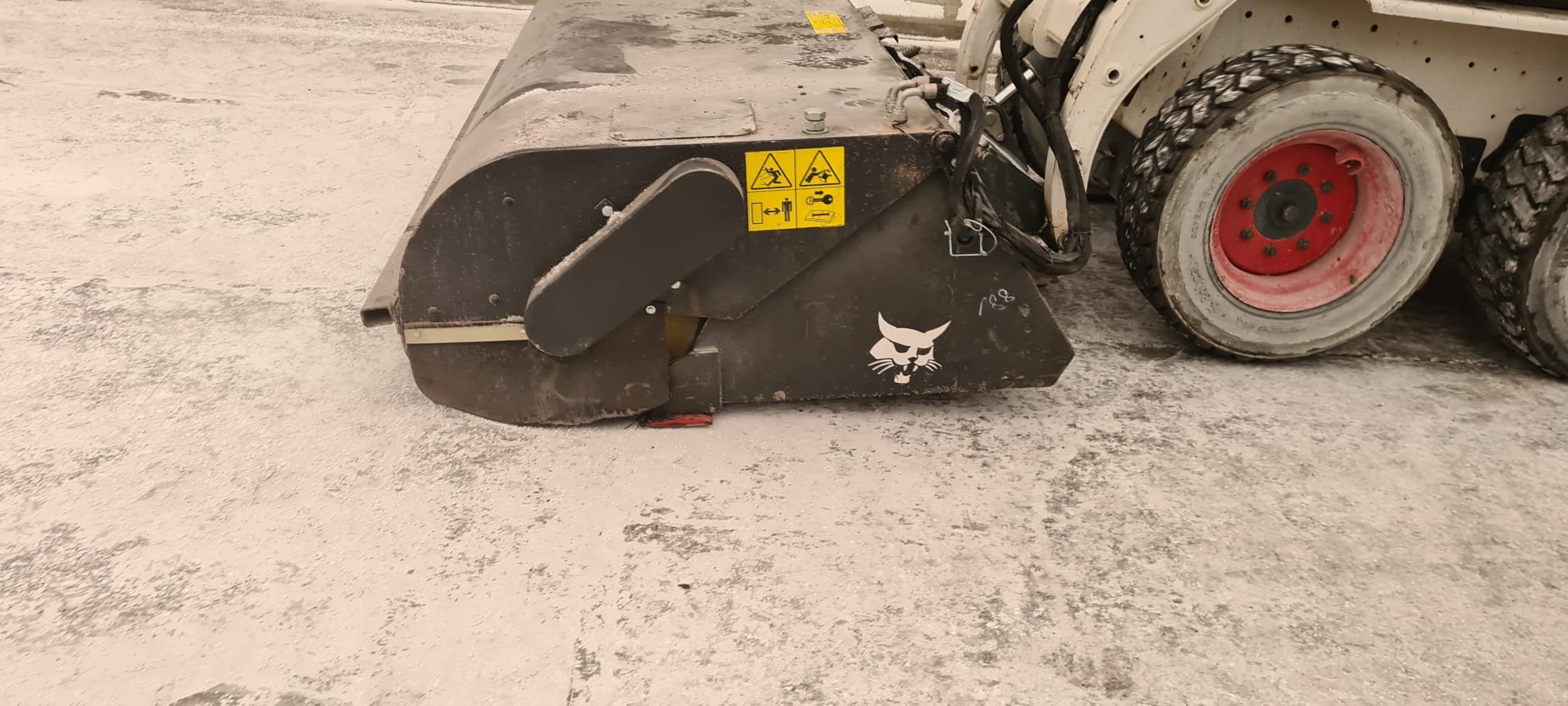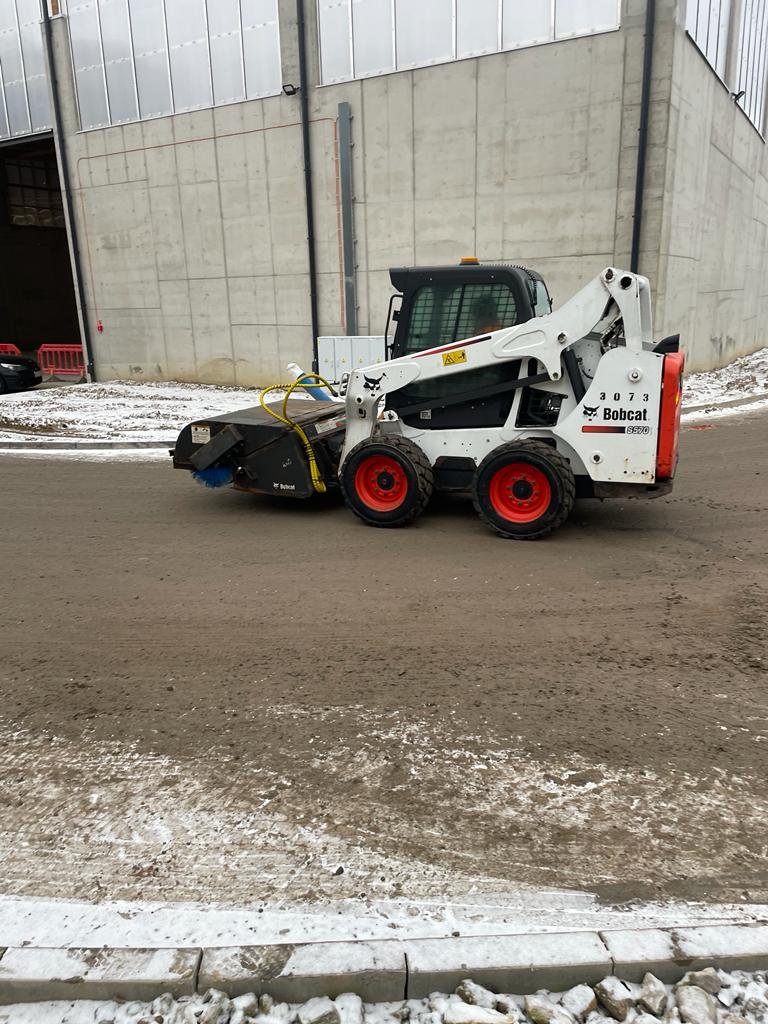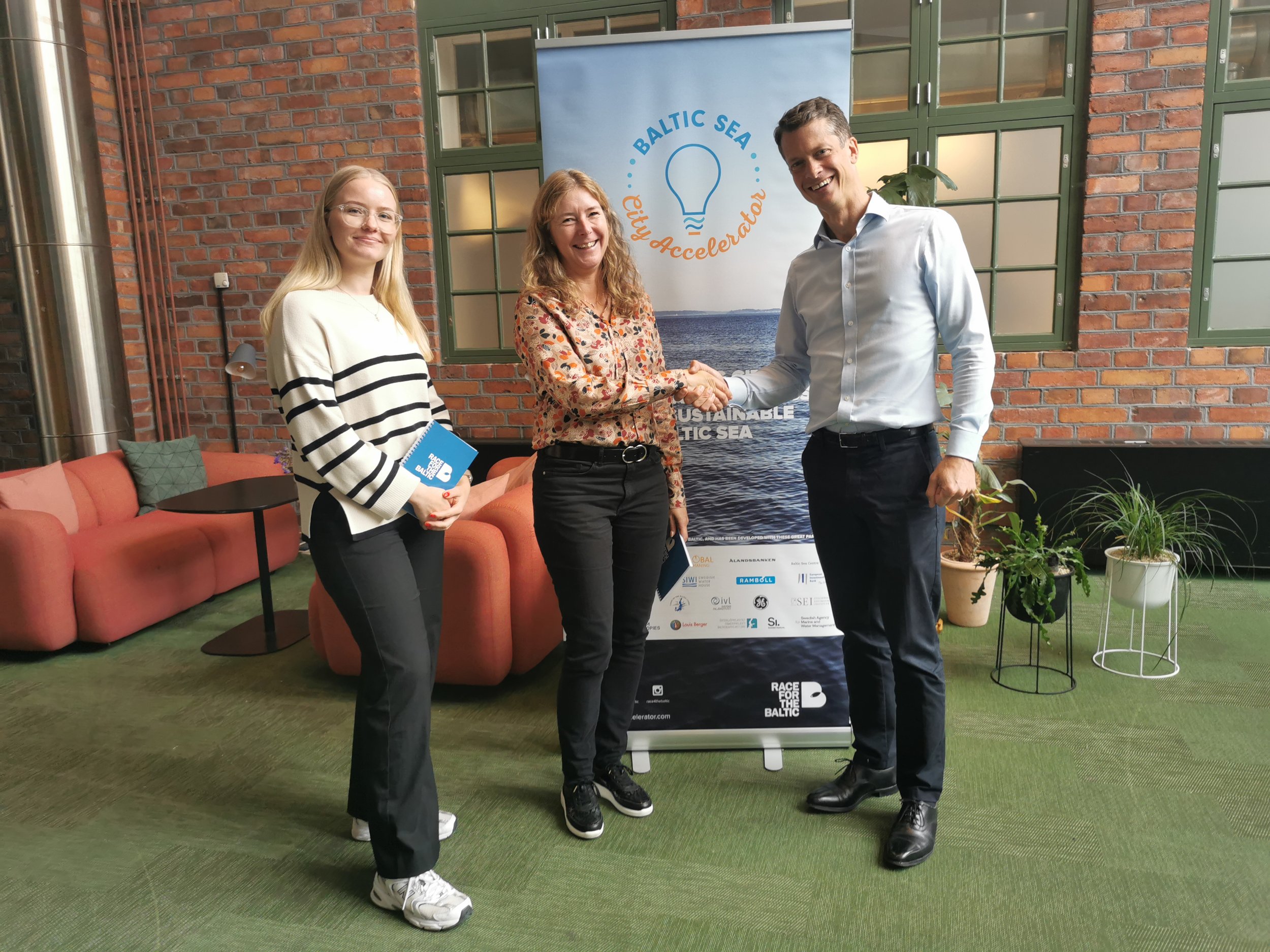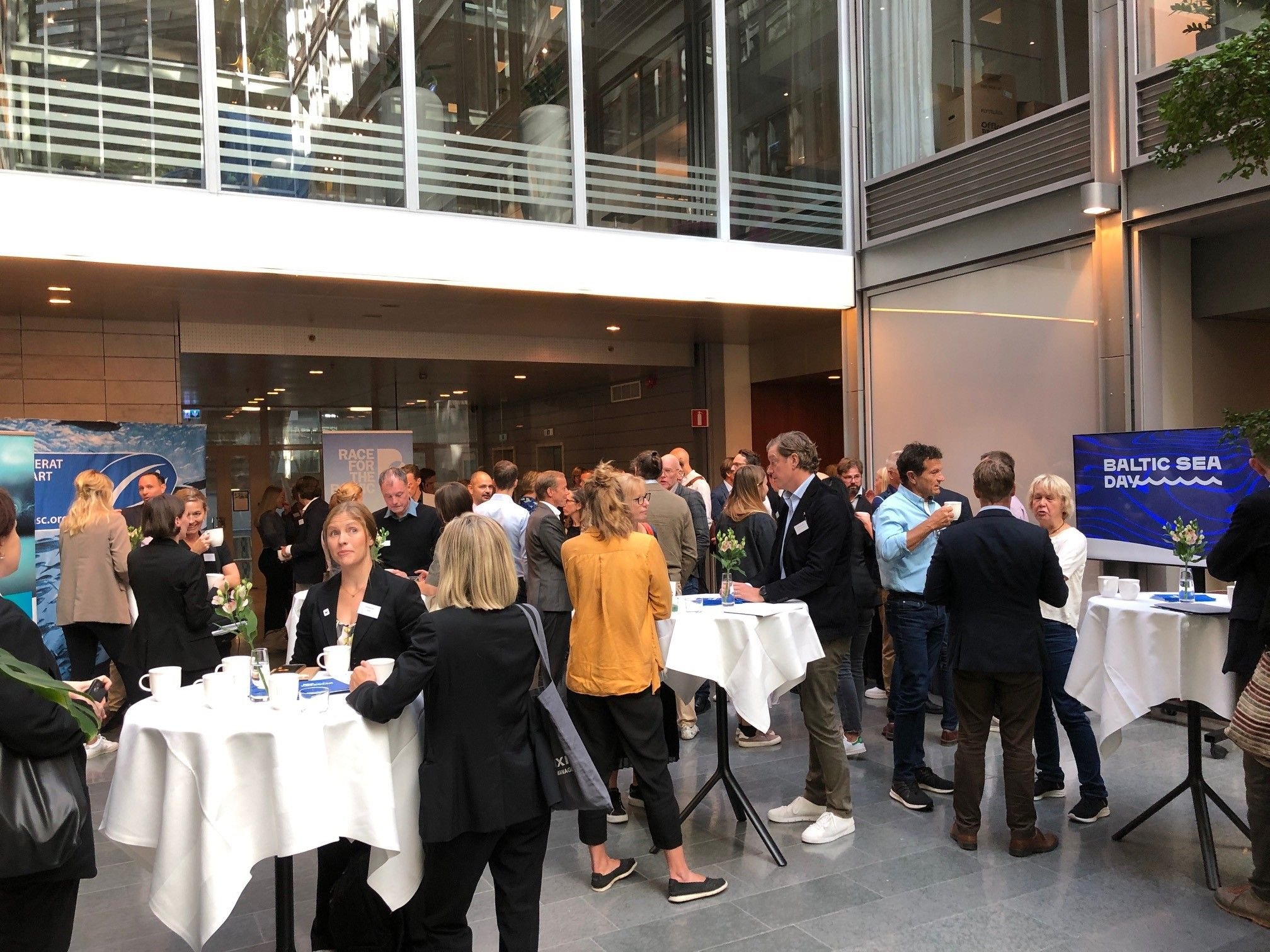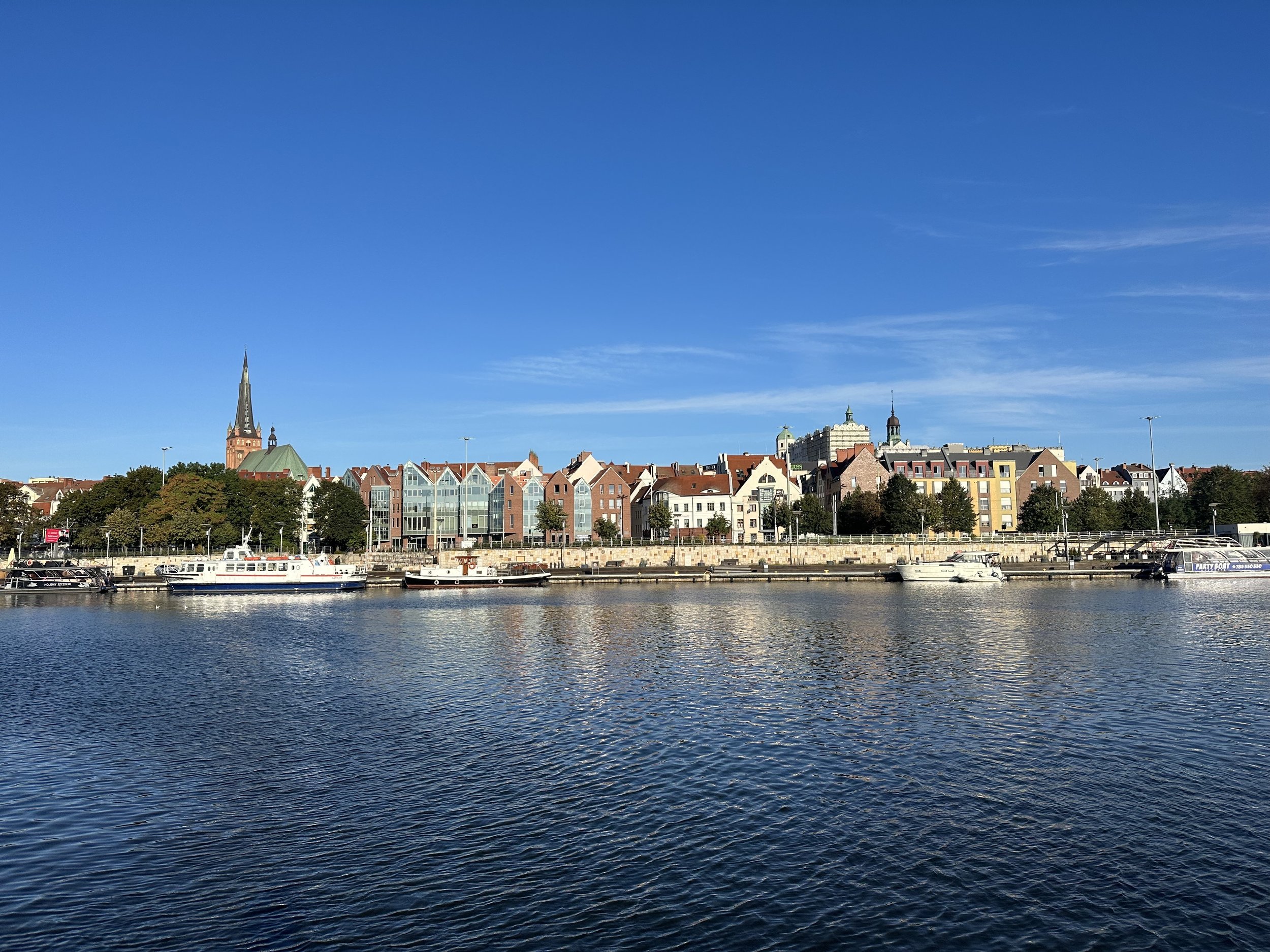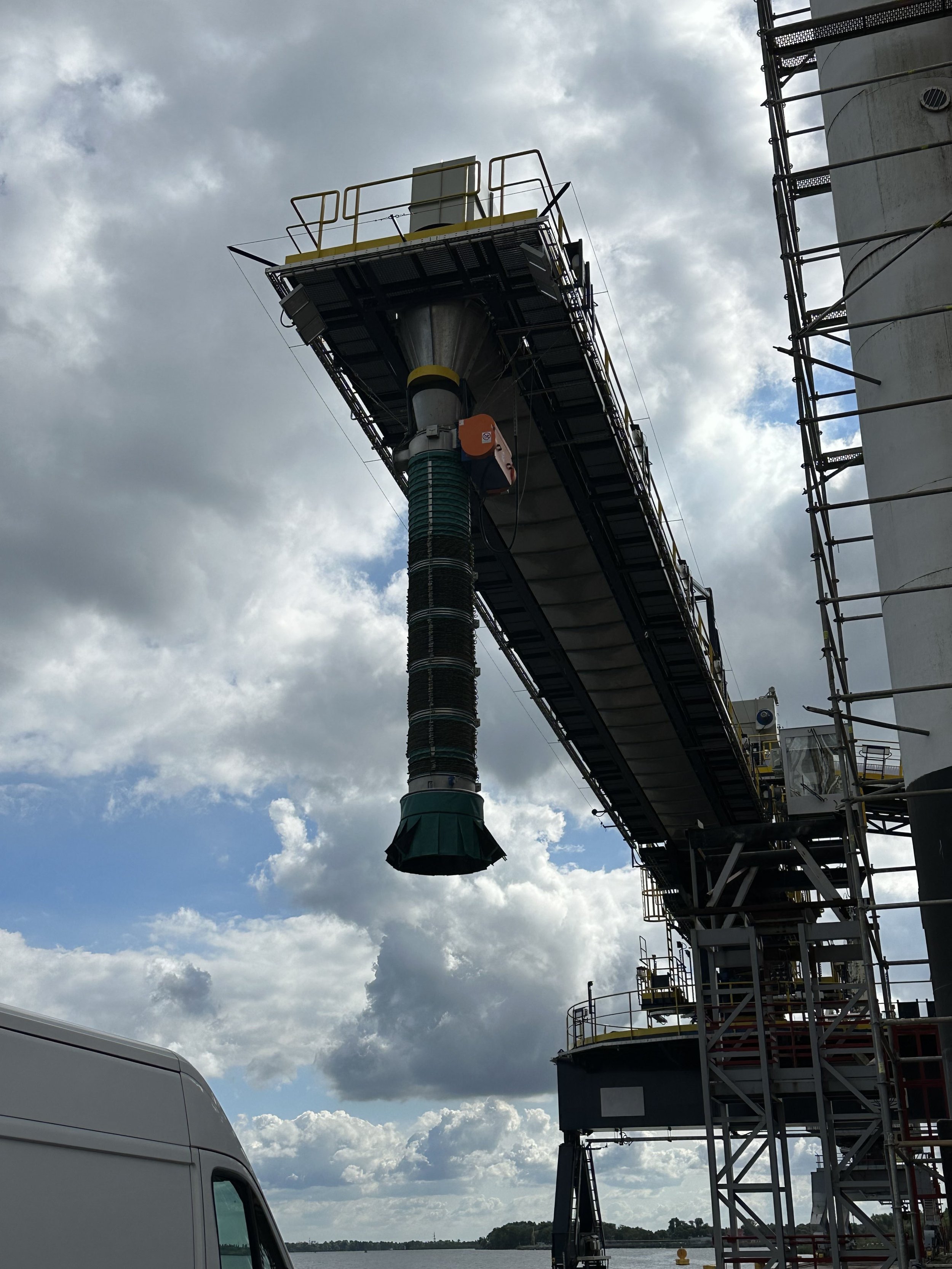Driving reed-based soil solutions forward
Together with Axfoundation we hosted a dynamic roundtable at Torsåker Farm, exploring reed as a sustainable soil improvement alternative. Stakeholders, including researchers and entrepreneurs, discussed investment needs, logistics, and innovative business models for reed-based soil. Additionally, a workshop was held in Helsinki with the John Nurminen Foundation, which brought together experts to support reed harvesters and enhance value chain efficiency. This summer, RFTB will harvest reed in Vaxholm and Norrtälje, collaborating with Skärgårdsstiftelsen, Statens Fastighetsverk, and Vaxholm municipality.
The Club is thriving in Katrineholm
Over three days, Katrineholm hosted the Baltic Sea City Accelerator Club for the first time since they took over the operations for the Club. Participants from Estonia, Lithuania, Poland, and Sweden gathered to accelerate efforts to improve water quality in the Baltic Sea, through collaboration and cross-sector cooperation. During the event there were lectures, workshops, and field visits to see concrete examples of how measures can help reduce nutrient leakage in a rural context in both Katrineholm and Nyköping. deepened their knowledge of the EU Water Framework Directive and gained a deeper understanding of how the environmental toxin PFAS affects the Baltic Sea.
Field testing and new recruitment to the project
Firstly RFTB would like to welcome Elsa Bertils who is the new business manager for the GYPREG project! Elsa has extensive experience from innovation and strategic sustainability work. In her previous role Elsa was Sustainability Manager at one of the largest soil producers in Sweden. In Q2, RFTB organised a stakeholder webinar for awareness raising and participated at the project partner meeting in Krakow. The theme was tackling agricultural phosphorus load by soil amendments. Field tests will begin in Sweden in August to evaluate gypsum's effectiveness.
Strengthened partnership and data collection
In Q2 RFTB held a productive meeting with Grupa Azoty Police, discussing environmental commitments and projects to reduce phosphorus emissions. We are now considering partnering with another fertilizer plants to limit phosphorus discharge into the Baltic Sea. Additionally, RFTB began data collection from cleaning sweepers during the first quarter of 2024. This data, covering phosphate rock and fertilizers collected from quays, storage areas, and ship holds, highlights the effectiveness of the cleaning machines in preventing significant pollution of the Baltic Sea.
BalticReed: Project partner meeting and mapping of harvesting sites
RFTB hosted a two-day project partner meeting in Stockholm, with internal workshops at Boston Consulting Group, a study visit to RISE Research Institutes of Sweden, which highlighted innovative methods of transforming reed into sustainable packaging solutions. The following day, a seminar focused on the untapped potential of reed-based value chains, was held at Mannheimer Swartling. A recording from the seminar can be found here. Together with partners, potential reed harvesting sites have been identified for the harvest, which is planned for summer ‘24. Additionally, a survey has been distributed to Swedish municipalities along the Baltic Sea coast, aiming to gather data on local reed harvesting practices.
Intervju med Desirée Jaks - Årets Kock med ett hjärta för Östersjön
Vi på Race For The Baltic är entusiastiska över att dela med oss av en exklusiv intervju med Desirée Jaks, årets vinnare av den prestigefyllda titeln Årets Kock. Då vi arbetar med att påskynda lösningar för att säkerställa ett friskt Östersjön för framtida generationer, är det med stor glädje vi lyfter fram Desirées tankar och idéer. Hon talar om allt från sin passion för närproducerade och säsongsmässiga ingredienser till sin personliga relation till Östersjön. Låt oss utforska hennes inspirerande synsätt och hennes vision för en mer hållbar gastronomi och en friskare Östersjö.
Port: All cleaning machines put into operation at our key partners
During the first quarter of 2024 all cleaning machines that we co-financed have been put into operation at our key partners which is: Fosfan, Baltic Stevedoring Company and Grupa Azoty Police. As the winter receded and the weather improved it enabled them to use the equipment at harbours, warehouses, and production areas where they handle fertilizers and phosphate rock. We have made a great step towards wrapping up port project as it will be concluded in 2. On the top of things there has been a huge progress with prevention cover designs. Covers will be installed at the seaports of our above-mentioned key partners.
Production: Grupa Azoty Police and Race For The Baltic announces cooperation
Significant progress was made with our key partner in Poland, Grupa Azoty Police where we officially announced cooperation to reduce the environmental impact on the Baltic Sea. The port is located just by the Oder River and it is Poland’s fourth-largest port by cargo volume with two million tonnes of cargo being transshipped here annually. After the successful implementation of cleaning sweepers in the Police Port terminal, RFTB is now looking at new projects together with Grupa Azoty within environmental sustainability. RFTB also participated in a series of meetings and a conference where we discussed the circular economy possibilities within the phosphate industry and presented best available practices for handling dry bulk fertilizer in ports.
GYPREG: Gypsum potential in Sweden and field test preparations
The main purpose of the GYPREG project is to increase the uptake of gypsum treatment in agricultural fields and promote the adoption of good practices to reduce phosphorus losses into the Baltic Sea. Together with Swedish University of Agricultural Sciences (SLU), RFTB performed a GIS-analysis (Geographic Information System) of agricultural areas in Sweden draining to the Baltic Sea and suitable for gypsum amendment. The study showed that there are 229 645 hectares of suitable land in Sweden draining to the Baltic Sea, where gypsum treatment can be applied.
Year in Review for 2023 now online
2023 was a year when we had the opportunity to reap the rewards of long-term efforts. In total, we succeeded in implementing measures estimated to prevent 48 tonnes of phosphorus from reaching the Baltic Sea each year. This is three times more than what we achieved in 2022, which was a record year in itself.
Race For The Baltic names Katrineholm Municipality as operating partner for Baltic Sea City Accelerator Club
Race For The Baltic is pleased to announce that Katrineholm Municipality will be expanding its engagement in the Baltic Sea City Accelerator Club and assuming project management responsibilities for the Club, starting now and continuing in 2024 and 2025.
Full-day conference "Baltic Sea Solutions" in conjunction with this year's Baltic Sea Day
The blue economy was the overarching theme at the full-day conference "Baltic Sea Solutions," a forum aimed at highlighting how the business sector can reduce its negative impact and contribute to a healthier Baltic Sea. The conference, organised by Race For The Baltic in cooperation with strong partners, was held in conjunction with Baltic Sea Day. Baltic Sea Day is an annual event taking place on the last Thursday of August.
Port: updated prevention cover in terminals
In Q3 2023, we've made notable progress in designing our new, strengthened prevention cover and identified new terminals interested in partnering with Race For The Baltic. As a result of the ongoing collaborations within the project we have also identified a new potential phosphorus source to the Baltic Sea, arising from increased grain handling activities in Polish ports.
Production: Significant advancements in collaboration with our main partner
During Q323 we had a major development in the cooperation with our main partner – a fertilizer producer in Poland – as we formally signed a framework cooperation agreement. Now we can start a full-fledged collaboration in areas concerning phosphorus emission prevention measures.








